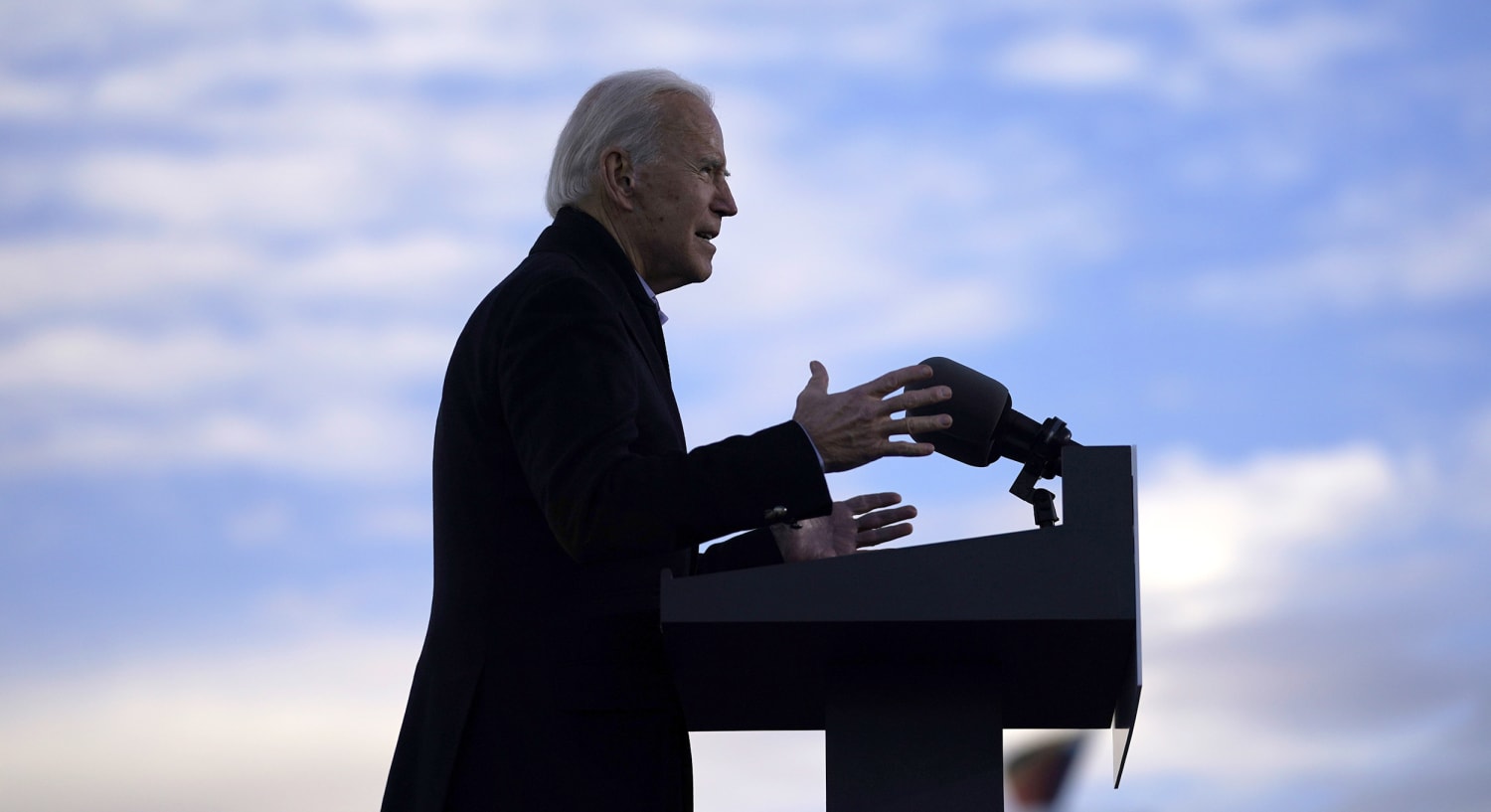WASHINGTON — President-elect Joe Biden said Friday that he favors setting aside concerns about the federal deficit in order to spend more money to boost the ailing American economy.
“Every major economist thinks we should be investing in deficit spending in order to generate economic growth,” Biden told reporters Friday, citing low interest rates and limited Federal Reserve powers to fix the Covid-19 crisis.
Biden said he’ll lay out an economic relief package this year that will cost “in the trillions of dollars” and include emergency relief for those harmed by the Covid-19 pandemic as well as investments in infrastructure, health care and “a whole range of things that are going to generate good-paying jobs.”
“If we don’t act now things will get much worse and harder to get out of the hole later. So we have to invest now,” Biden said. “There’s a dire, dire need to act now.”
Biden’s remarks came two days after Democrats were projected to capture control of the Senate, giving them the power to set the agenda in both chambers. The comments indicate that he and his party will be less inclined than they were during the Obama administration to acquiesce to Republican demands to limit new spending because of the national debt.
The president-elect suggested he believes the $900 billion pandemic relief package passed by Congress last month would not be enough. His remarks were well-received by progressives who have been skeptical of his moderate and deficit-conscious instincts.
Sen. Bernie Sanders, I-Vt., the runner-up in the 2020 Democratic primary and likely incoming chairman of the Senate Budget Committee, praised Biden’s comments in a Saturday interview.
“The president-elect is exactly right that this is not the time for austerity politics,” Sanders told NBC News. “We cannot maintain the austerity economics that have allowed the very rich bill to do phenomenally in this country while working people suffer.”
Sanders is poised to oversee the budget reconciliation process that is not subject to a filibuster. Democrats, who will seize control in the 50-50 Senate with the tiebreaking vote of Vice President-elect Kamala Harris, will be able to approve policies of taxing and spending with a bare majority of votes.
Democrats will hold narrow majorities in both chambers, which will constrain their ambitions even in reconciliation. And on most items, Senate Republicans will retain the ability to filibuster and force a 60-vote threshold, which means the biggest ambitions of progressives are unlikely to get far.
Sanders said he’s eying a “bold” agenda that includes $2,000 stimulus payments, enhanced unemployment insurance, access to child care, action on climate change, mitigating student debt and investing “very significantly in expanding health care,” including by lowering the Medicare eligibility age from 65 to 60.
The Vermont senator urged his colleagues to aim big or risk suffering a repeat of Obama’s first midterm election, when Republicans won huge victories in congressional races because, as Sanders tells it, voters “judged that Democrats didn’t do anywhere near enough” to improve their lives.
“We have to act with a boldness that we have not seen in this country since FDR,” Sanders said. “If we do not, I suspect that two years we will not be in the majority.”
In addition, House Democrats adjusted the chamber’s rules to make it easier to pass legislation that raises the deficit if it’s related to “economic or public health consequences resulting from the pandemic; and measures to prevent, prepare for, or respond to economic, environmental, or public health consequences resulting from climate change,” according to an official summary.
In the near term, at least, some fiscally conscious Democrats say they are willing to set aside fiscal concerns to address the pandemic-induced economic crisis.
“I believe in PAYGO. I think you have waivers for PAYGO in crises, which is why those of us who believe in balanced budget amendments believe you always have exceptions for crisis,” said Rep. Josh Gottheimer, D-N.J., the co-chair of the bipartisan Problem Solvers Caucus. “A pandemic is a crisis. We’re going to have to get through it. If you don’t actually invest in helping the country through it you’ll pay a much greater price at the back end.”
Source: | This article originally belongs to Nbcnews.com











